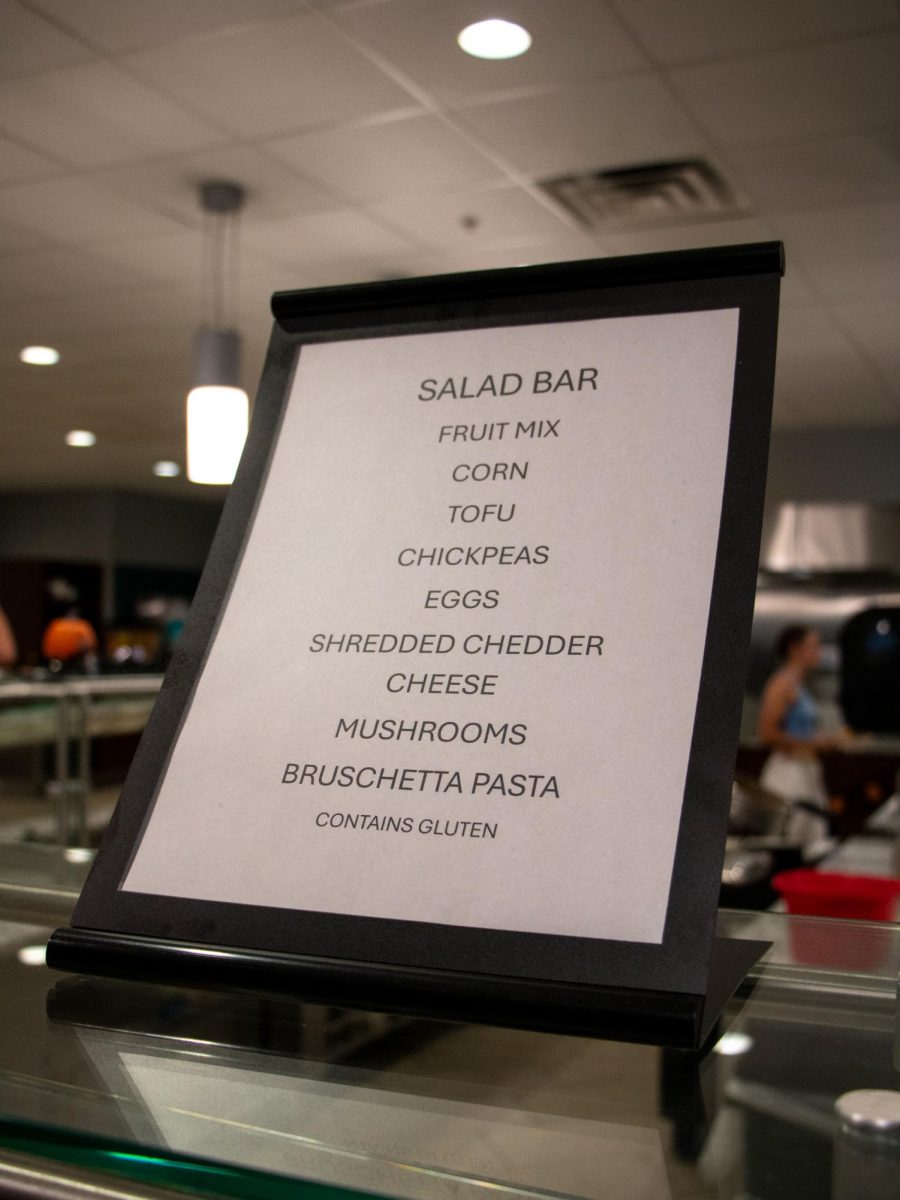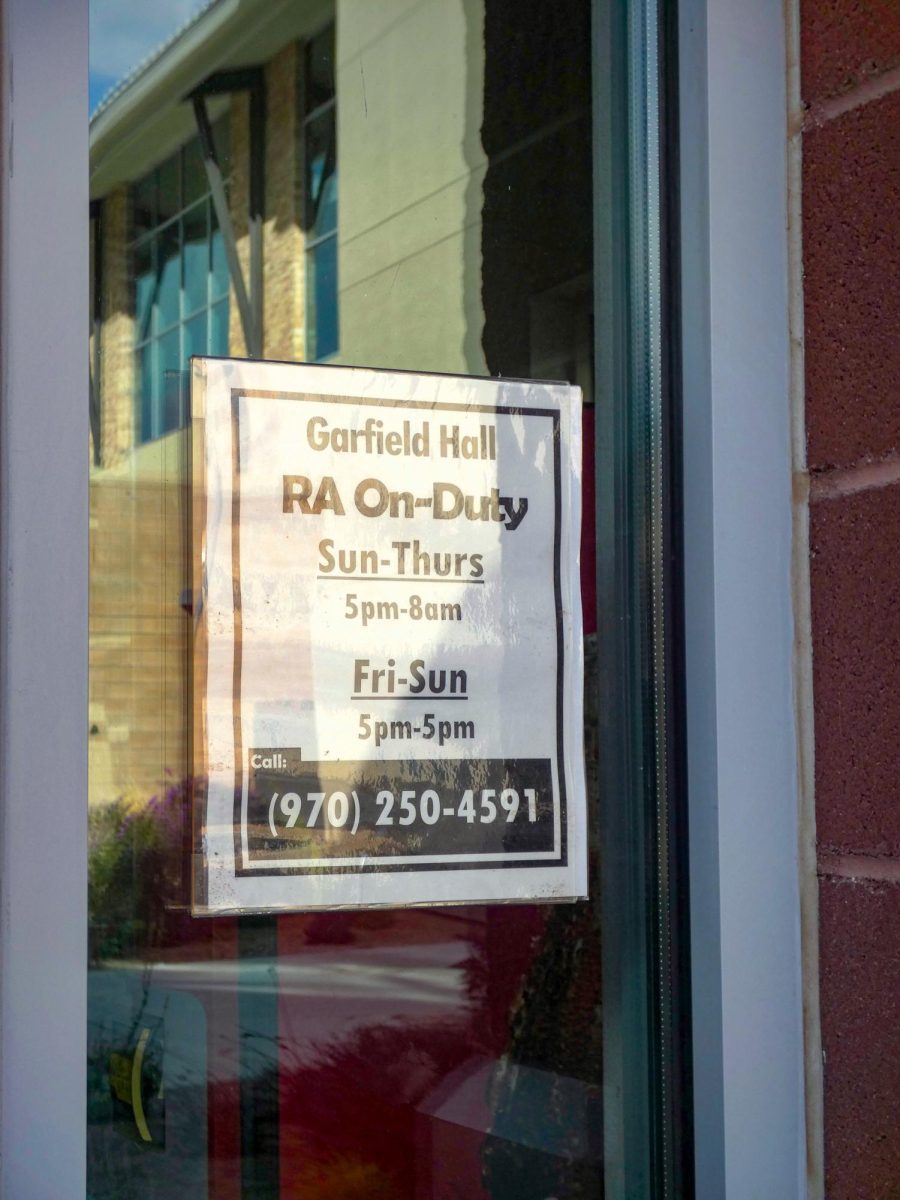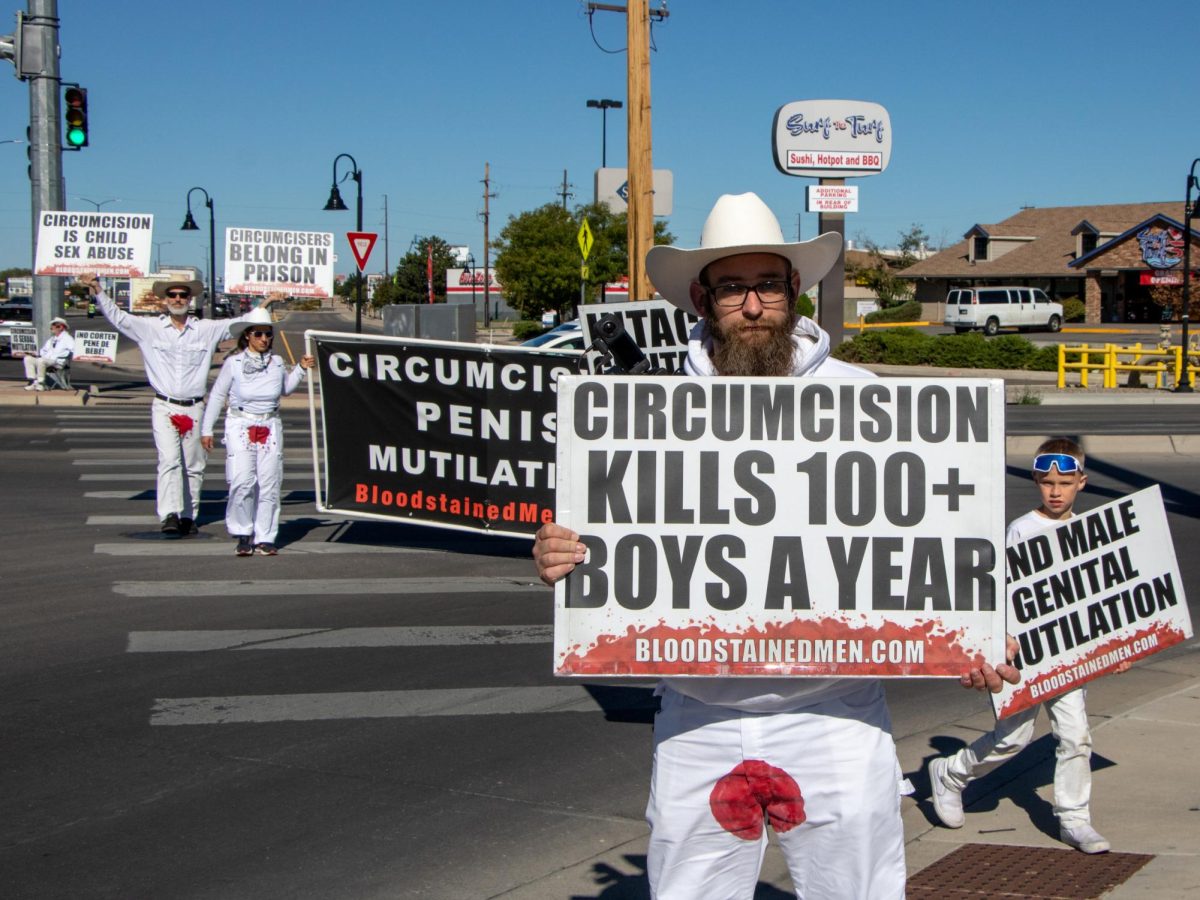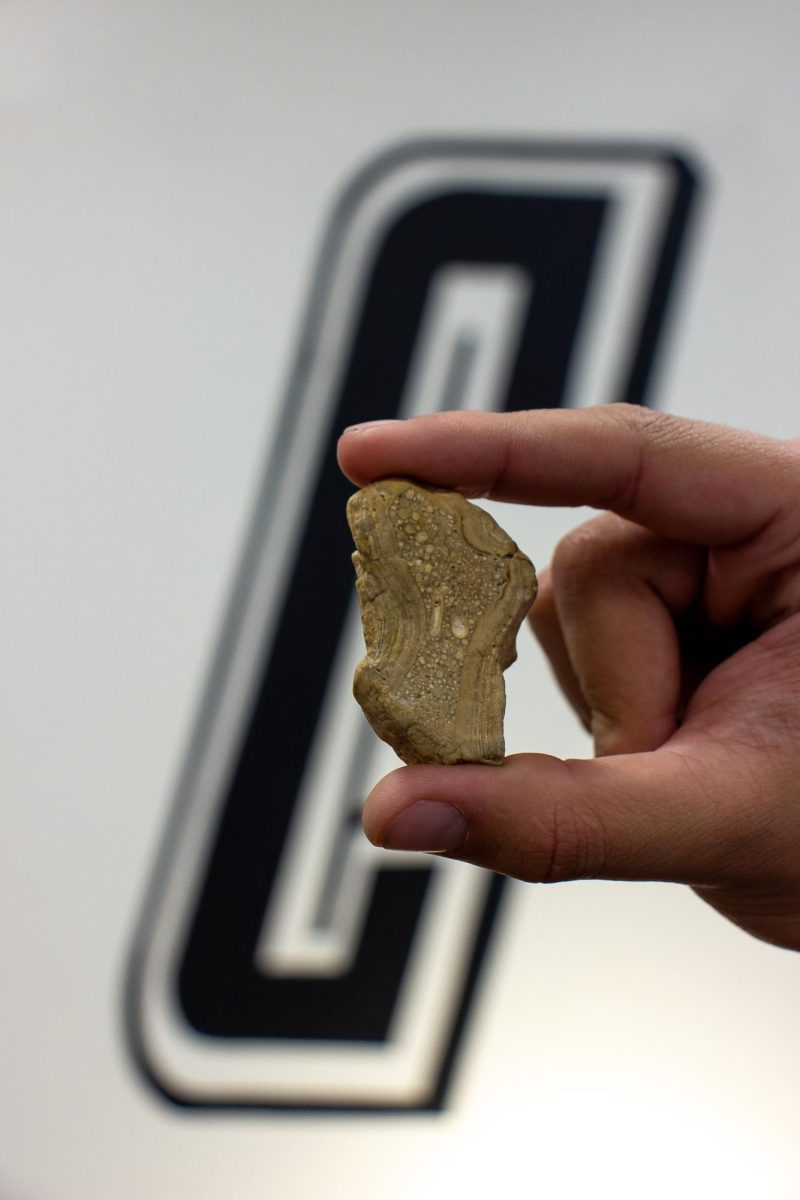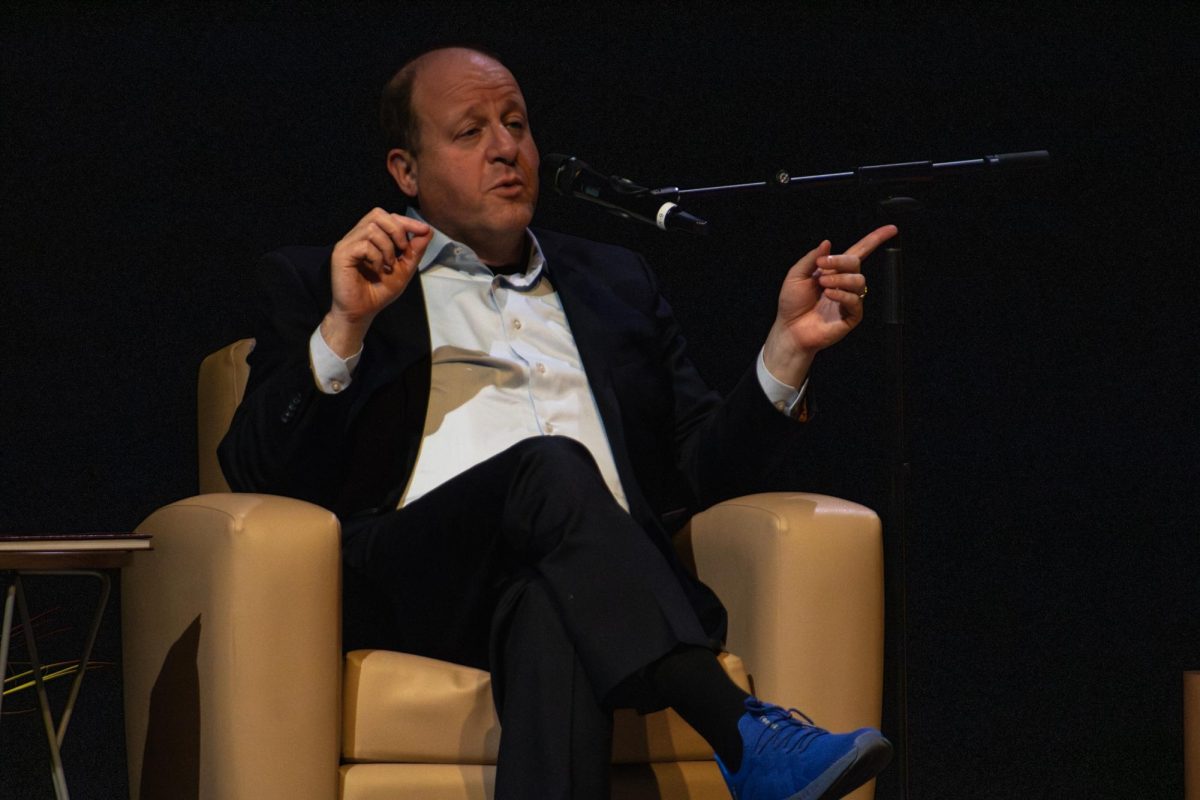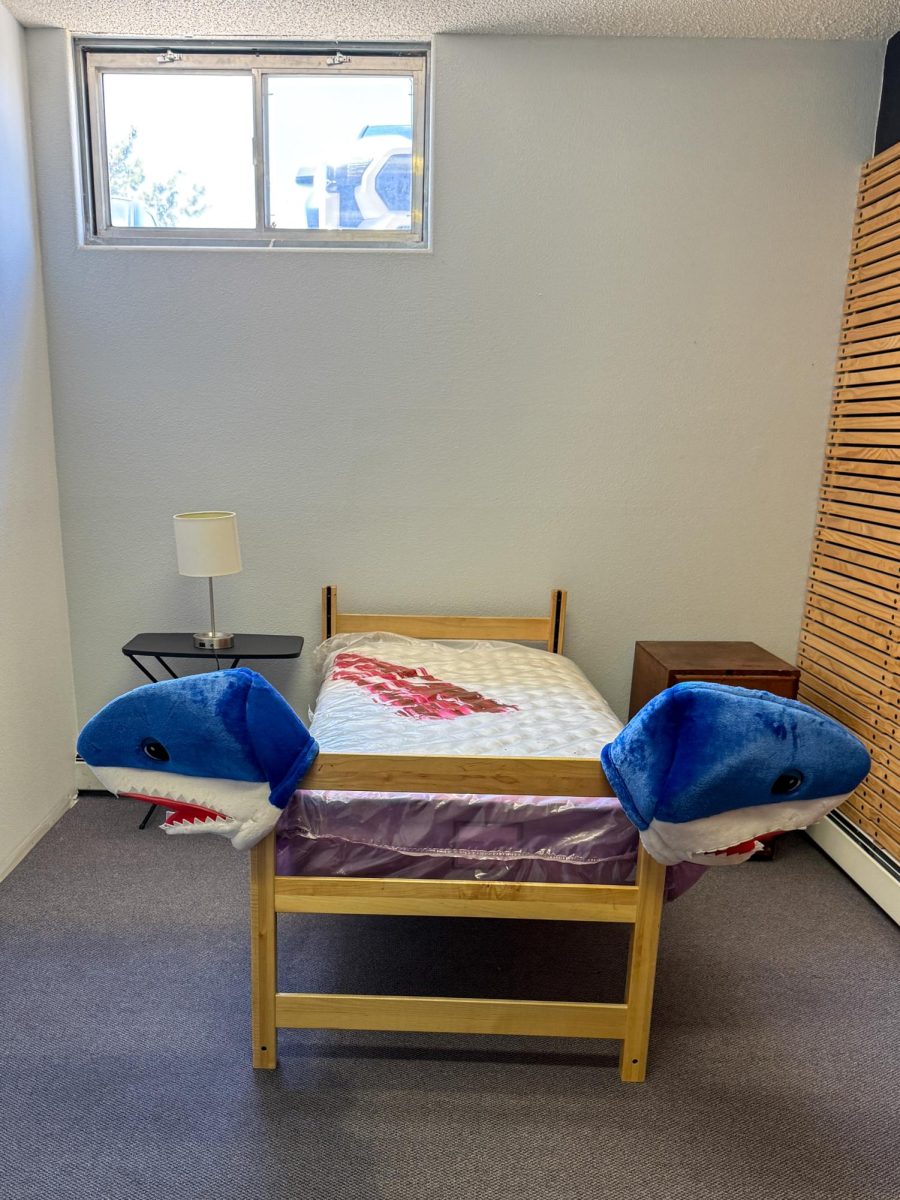Unapproved postings with vague political messaging have been popping up all over campus since the beginning of the Fall semester.
There is no way to ascertain who or what is posting these messages because there is no identifying information listed on them.
Normally, any piece of communication material that is put up in any building at Colorado Mesa University (CMU) must be approved by Student Life before posting.
This vetting process involves submitting the poster or flyer to the front desk of Student Life either in person or electronically.
After review, they provide a physical stamp of approval before the material can be distributed.
This system is in place to prevent harmful, misleading or otherwise irrelevant information from being distributed across campus.
However, these non-descript messages have no visible approval on them. The most recent message was a survey advertising the chance to win an Amazon gift card for participation.
Students were asked to scan a QR code and provide their full name, email address and their phone number. These flyers were first found on every table in Dominguez 217 on Oct. 24, 2024.
After further investigation these survey flyers were found in every classroom of Dominguez on every single table.
“We are conducting a political survey and we appreciate your help in answering,” is what the Google Form read after scanning the QR code.
The survey was extremely brief, containing only seven questions that were not related to any personal information.
These questions consisted of: what college the participant attends, what their political identification is and what political issue they care most about.
More specifically, the survey addressed whether or not they might support second amendment rights, what their opinion on the morality of abortion is, which side they support in the Palestine-Israel conflict and if they’re interested in the topic of market-based environmental policy.
The question regarding which school the participant attends could imply that this is a campaign occurring on other college campuses in Colorado. A total of 22 in-state schools were listed as options representing regions all across the state.
There was no indication that the information submitted will be protected or how it will be used. After taking the survey the participant is simply thanked for their submission.
In formal research and data collection, ethical standards dictate that participant welfare, consent and the right to privacy are the highest priority.
An Institutional Review Board (IRB) will vet a survey, or any research tools, to ensure the standards are met and that the information collected will be handled properly.
When this survey was brought to the attention of Student Life via Instagram, there was no acknowledgement from them.
Associated Student Government (ASG) was also made aware of the survey via Instagram and they responded immediately stating that they had no knowledge of the messages and that President Domingo will investigate. It has, however, been noted that systems in place failed to catch this and other unapproved messaging.
Prior to writing this story, the author submitted a report to Campus Safety and Student Services, claiming a potential for fraud. There has been no response provided yet at this point in time.
This survey is the first of its kind so far in this string of non-descript messaging on campus.
More flyers advertising political gatherings off campus have also reeently been posted in Moss Performing Arts Center and Dominguez, both on and around the stands that the Criterion and Horizon Magazine are displayed on.
Headlines on one flyer read “People versus Propaganda” and advertised a formal meeting at the local Mesa County Library. There were no logos or indications of the group or person that hosted the event.
Several paragraphs with politically charged rhetoric regarding propaganda followed. There was a disclaimer at the bottom indicating that the events and the content of the flyers were not endorsed by Mesa County Libraries.
A connection between the survey and the previous flyers advertising off-campus meetings has not been formally established, however the close timing and similar messaging could be assumed as such.



